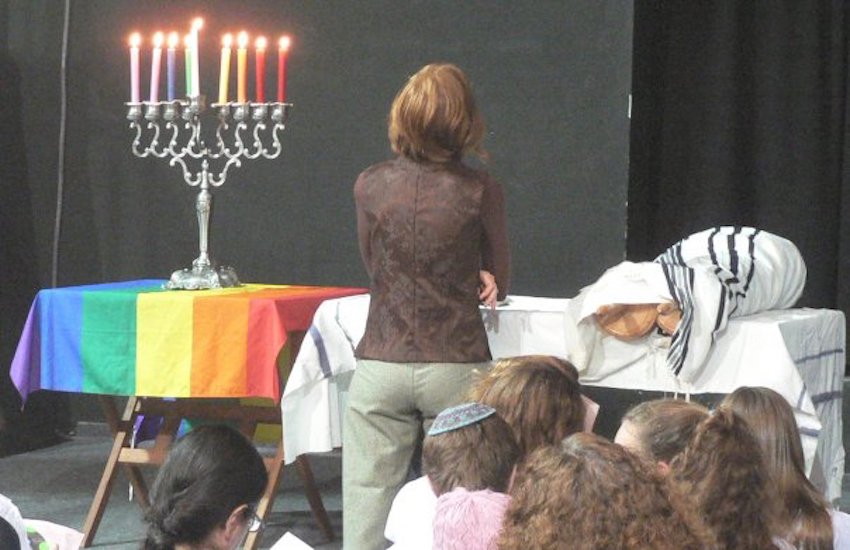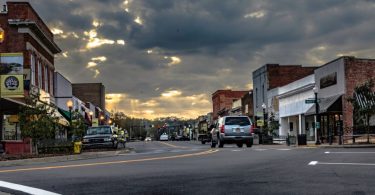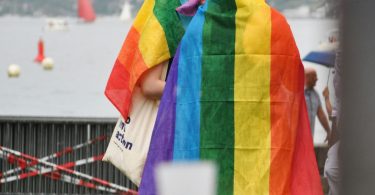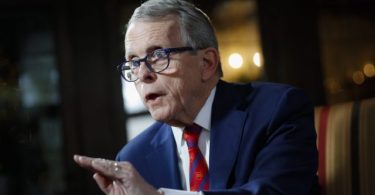Orthodox Rabbi Mike Moskowitz took a job at the world’s largest LGBTI synagogue
Mike Moskowitz, an Orthodox Rabbi, recently took a job at an LGBTI-inclusive synagogue in New York City.
Tell me more!
Moskowitz, 38, is part of the haredi sect of Orthodox Judaism. This strain of Judaism typically opposes modern, secular culture. So for a haredi Rabbi to take a job at Congregation Beit Simchat Torah, which describes itself as the ‘world’s largest LGBT synagogue,’ is surprising.
Congregation Beit Simchat Torah was founded in 1973 by twelve gay Jewish men.
Despite Orthodox law prohibiting same-sex relations, crossdressing, and gender fluidity, Moskowitz thinks his position as scholar-in-residence at the synagogue is a ‘perfect fit.’ He believes that compassion for people, regardless of who they are, was a main takeaway from his education.
Moskowitz feels that serving queer Jews is an important duty of Orthodox Rabbis and not a contradiction. For him, this job is a great way to help those in need.
‘The religious community has a unique responsibility to provide sanctuary, a literal sanctuary for people who are searching,’ Moskowitz tells JTA. ‘How can we broaden the tent to allow people to feel communally engaged in and taking responsibility for their unique relationship with God?’
Moskowitz’s background
Moskowitz grew up in a secular Jewish family in Richmond, Virginia. He went on to participate in conservative Jewish youth groups and to study for eight years at two prestigious haredi institutions.
Moskowitz started counseling transgender Jews three years ago when he worked for an Orthodox outreach program at Columbia University. Around the same time, a close family member of his began transitioning, so the plight of trans people hit close to home.
In December 2016, Moskowitz gave a sermon to the synagogue he worked for at the time about accepting trans Jews. He utilized an obscure piece of 16th-century Torah commentary to prove his point. He also wrote a letter to a Jewish day school urging them to not expel a transgender student. Shortly thereafter, he was let go from both jobs he had at the time.
‘It’s the holiest among us that are often the most vulnerable because their light is the brightest,’ he said in the pro-trans sermon, referencing the symbolism of the menorah’s candle light. ‘To such an extent that some aren’t even aware that darkness exists. Are we going to protect that light?’
Torah interpretations
Though Orthodox communities can claim to be warm and accepting in theory, Moskowitz believes they truly need to do more when it comes to acceptance of LGBTI Jews.
‘There are absolutely ways that religion can be a system for oppression like all others,’ he says. ‘When it comes to the theoretical, they’re quick to say “of course we should be inclusive.” When it comes to the practical, there’s a huge gap between the ideal and the way in which it actually manifests.’
Moskowitz thinks the Orthodox interpretation of LGBTI things, such as crossdressing, is wrong. For instance, the ban on crossdressing, according to Moskowitz, is actually a ban on misinterpretation of one’s gender identity through clothing.
‘Transgender as an awareness is just a presence of understanding,’ he says. ‘There’s no prohibition to acknowledge the reality of something when it comes to one’s identity. If a person says about themselves “this is who I am,” it’s not a space of choice.’







